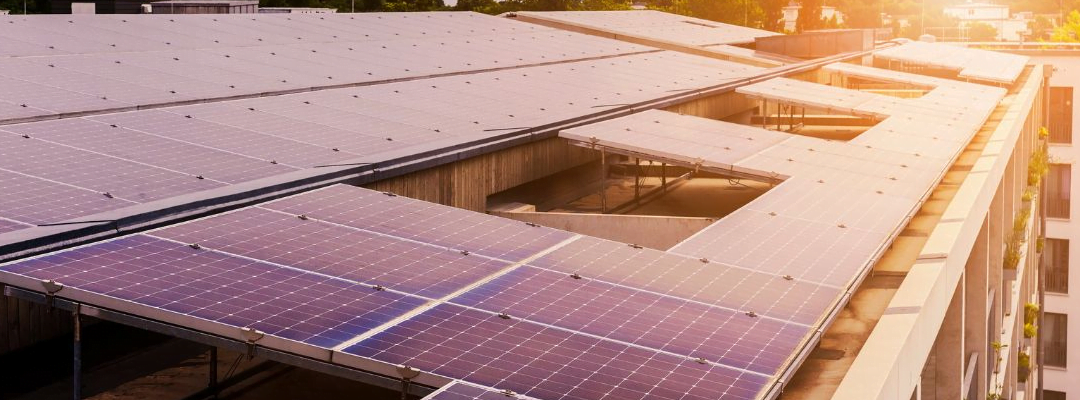As one of India’s most vibrant and populous cities, Mumbai is often known for its bustling streets, vibrant culture, and economic opportunities. However, like many urban centers around the world, it faces challenges such as air pollution, high energy demand, and climate change. In response to these challenges, solar energy has emerged as a pivotal solution for the city.
The Growing Demand for Renewable Energy
- With a population exceeding 20 million, Mumbai’s energy needs are substantial. The city relies heavily on conventional energy sources which not only contribute to environmental degradation but also run the risk of being unsustainable in the long term. As part of India’s commitment to renewable energy, the government has set ambitious targets to increase the share of renewable in the energy mix, with solar power holding a prominent place due to its potential and scalability
Government Initiatives and Incentives
- The Maharashtra government, along with the central government, has implemented several initiatives to promote solar energy System in Mumbai. The Maharashtra Solar Policy 2015 aimed at encouraging the adoption of solar panels through various measures, including subsidies and tax incentives for residential and commercial installations. The state has set a target of generating 14,400 MW of solar power by 2025, and significant investments have been made in solar infrastructure.
- Additionally, the Net Metering Scheme allows users to sell excess electricity back to the grid, making solar panels not just a sustainable choice, but also a financially viable one. This incentives businesses and homeowners to install solar systems, contributing to the grid while reducing their reliance on non-renewable power.
Advantages of Solar Panels in Mumbai
Environmental Benefits
- Solar panels offer a clean and renewable source of energy that can help mitigate the effects of climate change. By harnessing solar energy, Mumbai can reduce its carbon footprint, decrease air pollution, and combat rising temperatures. This is particularly crucial for a city that often struggles with poor air quality and heat waves.
- Integrating solar power into automation is a powerful strategy for achieving sustainable manufacturing. It not only reduces environmental impact but also enhances efficiency, lowers costs, and increases energy independence. As technology continues to advance, the barriers to adopting solar-powered automation are diminishing, making it a viable option for manufacturers committed to sustainability. By embracing this pathway, the manufacturing industry can play a critical role in the global transition to a greener future.
Economic Advantages
- Investing in solar energy not only reduces electricity bills but also creates job opportunities in installation, maintenance, and manufacturing of solar panels. The solar industry is becoming an increasingly important sector in Mumbai’s economy, promoting green jobs and entrepreneurial opportunities.
Schedule a Free Site Visit Today!
Energy Independence
- Solar energy empowers residents and businesses to become more self-sufficient. By generating their own electricity, users are less vulnerable to power outages and fluctuations in energy prices. For a city like Mumbai, which experiences frequent power cuts, this reliability is essential.
Space Solutions
- In densely populated Mumbai, available space for energy generation is limited. Solar technology offers innovative solutions like rooftop solar panels, which utilize previously underutilized spaces. This not only maximizes energy generation but also minimizes the need for large-scale land use that can contribute to urban sprawl.
Challenges and Considerations
- Despite the many benefits, the adoption of solar panels in Mumbai is not without challenges. Issues such as high initial investment costs, lack of awareness about solar energy, and bureaucratic hurdles can impede progress. Moreover, the city’s tropical monsoon climate raises concerns about the efficiency of solar panels during the rainy season.
- To address these challenges, it is essential for stakeholders—including government bodies, non-profits, and private companies—to work collaboratively. Awareness campaigns that educate the public on the long-term benefits of solar energy and streamlined policies that simplify the installation process can foster greater adoption.
The Future of Solar Energy in Mumbai
- The future of solar panels in Mumbai looks promising. With increasing awareness of the urgent need for sustainable energy solutions, more residents and businesses are making the switch to solar. Technological advancements in solar panel efficiency and battery storage are further enhancing the viability of solar energy.
- In addition, as global climate commitments tighten, solar energy will play an integral role in Mumbai’s energy transition. By investing in this clean energy source, Mumbai can not only support its economic growth but also pave the way for a sustainable future.
- In conclusion, the rise of solar panels in Mumbai is a crucial step towards a cleaner, greener, and more sustainable city. As the world shifts towards renewable energy, Mumbai can lead the way by embracing solar power and inspiring other cities to follow suit. The time for a solar revolution in Mumbai is now, and with collective efforts, the city can light the way toward a brighter future.

